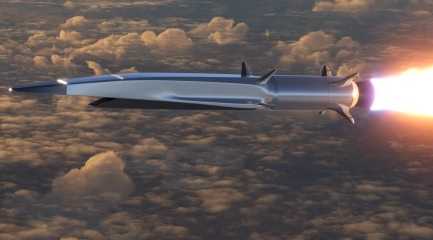
08 June 2023; MEMO: Iran, on Thursday, described its missile program as "conventional" and "legitimate", rejecting what it called "interventionist" remarks by Western leaders over the unveiling of the country's first hypersonic missile, Anadolu Agency reports.
Iran's missile program is "conventional, defensive and is completely legitimate based on international law," Foreign Ministry spokesman, Nasser Kanaani, said in a statement.
Iran, on Tuesday, displayed its first indigenous hypersonic ballistic missile in the presence of top political and military officials, including President Ebrahim Raisi and Revolutionary Guards (IRGC) chief, Hossein Salami.
The hypersonic missile, named Fattah, has been developed by IRGC's aerospace division with a range of 1,400 kilometres and can penetrate and destroy all missile defence systems, according to the IRGC Aerospace Commander, Amir Ali Hajizadeh.
In response to the unveiling of Iran's first indigenously developed hypersonic missile, spokesman for the US Department of State, Vedant Patel, said Washington's "concerns about Iran's missile program are well-established".
The French Foreign Ministry also voiced concern over the development of Iran's new ballistic missile with a declared range of 1,400 kilometres (870 miles).
"This is yet another breach of UN Security Council Resolution 2231. These activities come amid the continued escalation of Iran's nuclear and ballistic programs. We remain fully mobilised to prevent Iran from obtaining nuclear weapons," the Ministry said in a statement.
British Foreign Office said in a statement the development of Iran's first hypersonic missile proves its "continued disregard for international restrictions" and comes amid "the continued escalation of Iran's nuclear and ballistic programs".
Kanaani said these countries, referring specifically to the US, UK and France, have a "long and clear record of violating their international obligations in various fields" and have "no right to comment on the legitimate and completely legal defence capabilities of the Islamic Republic of Iran."
He referred to the signing of the anti-China AUKUS pact by the US, UK and Australia as "a clear example of nuclear powers' political and discriminatory approach on transferring technology and highly-enriched uranium to a non-nuclear country in violation of the Non-Proliferation Treaty."
The development of Iran's first hypersonic ballistic missile came amid heightened tensions with the US and Israel over the country's nuclear and missile program.
Speaking at the unveiling ceremony on Tuesday, President Raisi said Iran's missile industry has become indigenous, which he said is a "source of peace and security for the region".
In his remarks, Hajizadeh said Iran now becomes only one of the four countries in the world to have this technology, adding that the missile "cannot be destroyed" by any missile defence system due to its movement in different directions and heights.
The announcement about the hypersonic missile came first in November last year, when Hajizadeh said they have developed a hypersonic ballistic missile capable of piercing through advanced air defence systems and targeting them.
The senior IRGC Commander at the time described the development as a "big generational leap in the field of missiles", saying it came despite "oppressive US sanctions".
A hypersonic missile travels at speeds of Mach 5 and higher, which is five times faster than the speed of sound (3836 mph), making them virtually difficult to intercept or bring down.
The rapid development of Iran's missile arsenal in recent years has fuelled tensions between Tehran and Western countries, with the US announcing a series of missile program-related sanctions. Iran maintains that its missile program is non-negotiable and a means of deterrence.




